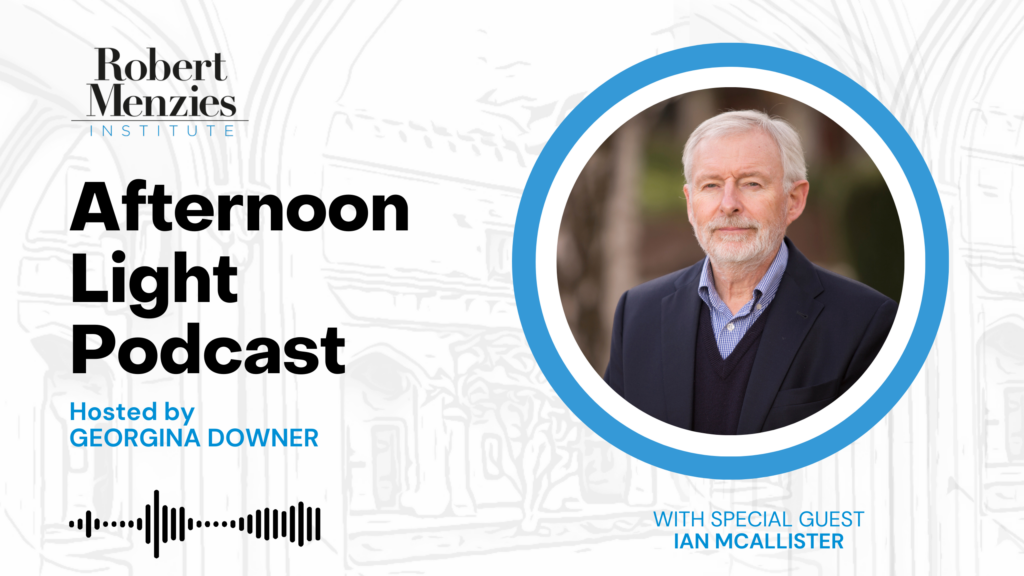Ian McAllister: ‘What Hasn’t Changed?’ The Evolution of Australian Elections since the Menzies Era
With the next Federal election called for 21 May we have a special episode of Afternoon Light looking at the way in which electioneering and the conduct of Australian elections has evolved since the Menzies era. Joining us to provide special insight is Professor Ian McAllister, who has been conducting the Australian Election Study surveys since 1987, and is the author of the book The Australian Voter: 50 years of change.
Australian elections have long been characterised by the rather uncommon tradition of compulsory voting, but outside of this and other mainstays like a pencil and paper, much of the way elections are now conducted would have been unrecognisable in Menzies’s day. While Menzies fought for the ‘Forgotten People’, the middle class, the days of traditional class-based voting are largely gone – with asset holdings being more important than job classifications in determining who people vote for. The electorate now contains far fewer ‘rusted on’ voters, with people more likely to change who they vote for from election to election, or to vote for a different party in the Senate. These trends are partly a long-term product of the Menzies Government, with rising prosperity and high levels of tertiary education eroding class barriers. While Menzies was a strong leader who formed a lasting political party, leaders now campaign increasingly as presidents and parties are now as much brands as they are a collection of like-minded members.
Ian McAllister is Distinguished Professor of Political Science at The Australian National University, and from 1997 until 2004 was Director of the Research School of Social Sciences at the ANU. He has previously held chairs at the University of New South Wales and the University of Manchester and has held other academic appointments at The Queen’s University of Belfast and the University of Strathclyde. He was President of the British Politics Group 2001-2002, edited the Australian Journal of Political Science from 2004 to 2010, and was chair of the Comparative Study of Electoral Systems project from 2003 to 2008.
Sign up to our newsletter
Sign up for our monthly newsletter to hear the latest news and receive information about upcoming events.


